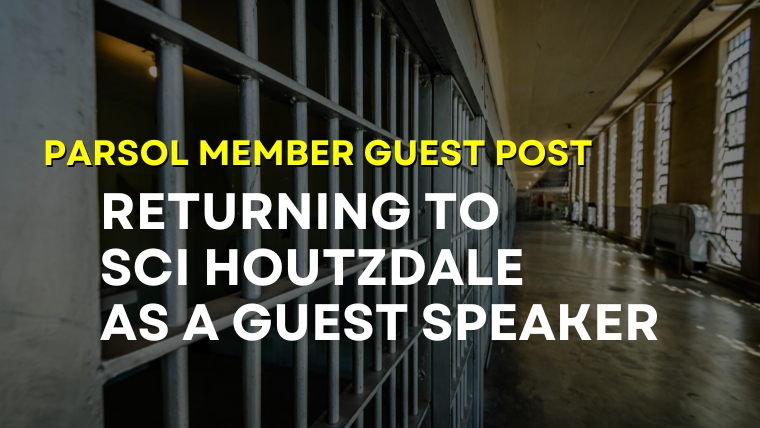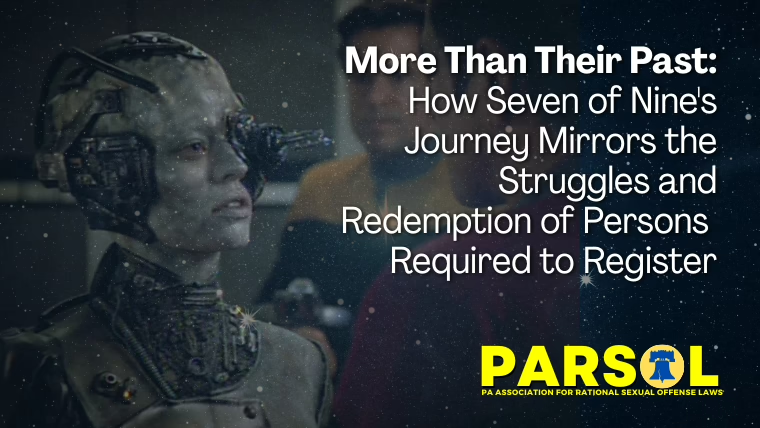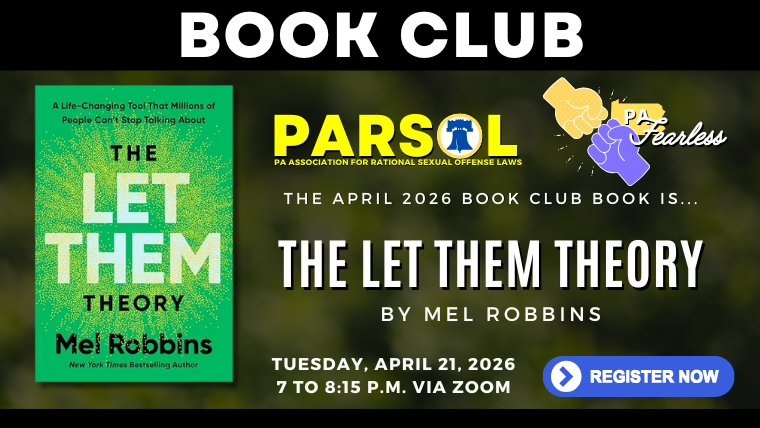More than three years after my release, I had the opportunity to return to Houtzdale State Correctional Institution’s Veterans’ Block (VSU) to tell my story to the Veterans still incarcerated. Unfortunately, the story of soldiers returning from combat who end up behind bars is not a unique one. Surprisingly, after my talk, I found out that the unit had never had a formerly incarcerated veteran return to address the former soldiers.
The story I wanted to share was one of the great successes in my life, followed by a dramatic fall from grace and the current struggle I am going through to regain the honor I once felt in my heart while I wore the uniform. I use the term “current struggle” because it is an ongoing fight to regain a sense of self-respect. Those once convicted of crimes understand that society sees us as criminals even after we have paid our debt and served our time. This is especially true for those that have ongoing requirements such as registration. Individuals in our circle of friends and family may see us as more than just criminals; society sees us only this way, especially with specific categories of crimes.
My mind raced as I made the two-hour drive from my home to SCI Houtzdale. What would it be like to enter the facility through the front door? During the drive, I rehearsed what I intended to say repeatedly. The theme of the talk revolved around something my sister repeated to me while incarcerated, which became my mantra – a quote from Bryan Stevenson’s book Just Mercy: “Each of us is more than the worst thing we’ve ever done.”
I parked my 2020 red Dodge pickup, which I purchased with money earned from my job since I left prison. Sweat dripped down my back in the 30-degree weather as I walked toward the visitor entrance. It struck me that the concertina wire atop the chain link fence did not seem as tall as I remembered. A large guard with a big smile greeted me. “How can I help you, sir?” he politely asked.
I explained I was there to see Mr. Daniel T. Mowrey, the VSU Manager and Veteran Coordinator. Within minutes, Mr. Michael Carrington, the statewide veteran’s coordinator, shook my hand and thanked me for returning to give an inspirational talk to the inmates. He admitted he had never heard of anyone returning to prison for this reason.
As we walked through the numerous gates heading towards the VSU, memories of my time flooded back to me. The smell of breakfast from the chow hall lingered in the air, and the clanking of the gates, as we moved from section to section rang in my ears. There was an expectation of anxiety before I showed up; however, surprisingly, there was none. I had made it out and knew my purpose was to help others do the same.
As I entered the veteran’s block, I was surrounded by the familiar military murals on the cinderblock walls. The room had 30 to 40 inmates seated in chairs waiting for my arrival. Not surprisingly, several inmates gave me the nod when our eyes met with recognition of my time spent in this very block.
After being introduced, I jumped into my story, which began with my military history. As a 33-year veteran in the Army, I wanted to impress upon the group that they, too, were once honorable soldiers, airmen, marines, and coastguard members. I reminded them that, at one time, each of them aspired to offer up their lives for their country and the betterment of our nation. Each of these men, at some point, willingly swore an oath to defend this country, knowing that oath could end in the ultimate sacrifice. I reminded them of this and offered my sister’s encouraging quote by Bryan Stevenson that helped me, “Each of us is more than the worst thing we’ve ever done.”
We spent the next 30 minutes discussing taking responsibility for their actions working to take advantage of the resources available from the prison and the VA. My story hit on everything I lost from the poor choices that led me to the VSU. It was important to get them to understand they could make their way back to a place of honor they each held as military members. Each of these incarcerated people once served honorably, defending this nation. They also made decisions that ended with them behind bars, working to pay their debt to society for those choices.
As I looked through the audience, I knew some became incarcerated for alcohol and drug abuse that led to crimes against persons or property; some were convicted of violent crimes, while others of crimes of a sexual nature. I explained my success came from not making excuses for my actions; we must accept our roles in the crimes to return to a life of honor. The fight back for honor is a personal struggle. I had to come to terms with what led me down a path in direct contradiction to the life I lived before the choices I made culminating in my arrest.
Once I had this epiphany, I explained that I started to change my life, as it was not the worst thing I’ve ever done. I shared that I volunteered to work. I began cleaning showers, which developed into a teaching job helping other inmates get their GED. I could see the realization in some of the crowd that this step could lead to regaining self-respect and a path to parole. I shared that the path back to honor is hard but worth it.
The last thing we discussed was the challenges faced after you leave the prison walls. For a time, parolees will undergo supervision that requires more self-discipline than the prison allows. Each parolee trades a set of walls you can see with an invisible set that are just as restrictive. One false move, and you end up behind the solid walls once again. I used my own experiences following every rule to explain how I was able to be released from a 10-year probation sentence after only serving one year. My conclusion to the talk was that it is not impossible to change your life once you commit to re-becoming a person of honor. And “each of us is more than the worst thing we’ve ever done.”
After we finished, I had the pleasure of meeting with several Vets. They thanked me for coming back to offer a path of success after incarceration from someone who walked it. The prison has excellent counselors and resources, but soldiers trained to go into combat have more confidence in learning from those who have been through the fire. Those of us who have walked through the fire owe it to the ones walking behind us to help them. We are responsible to society to help those that follow become a positive force for the world. I encourage every successful formerly incarcerated person to return and share your struggle with those left behind.
Photo of Bryan Stevenson by James Duncan Davidson by CC BY-SA 3.0 DEED License.




